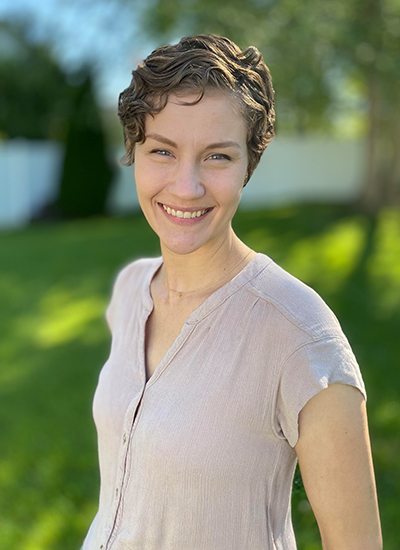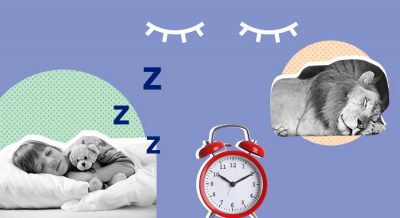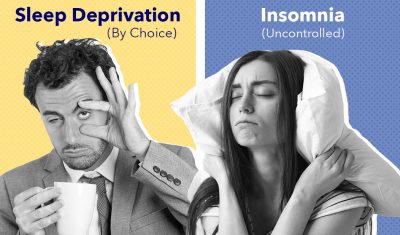The Ultimate Guide To Sleep Hygiene
- by Abby McCoy
- Updated: May 14, 2024
Table of Contents
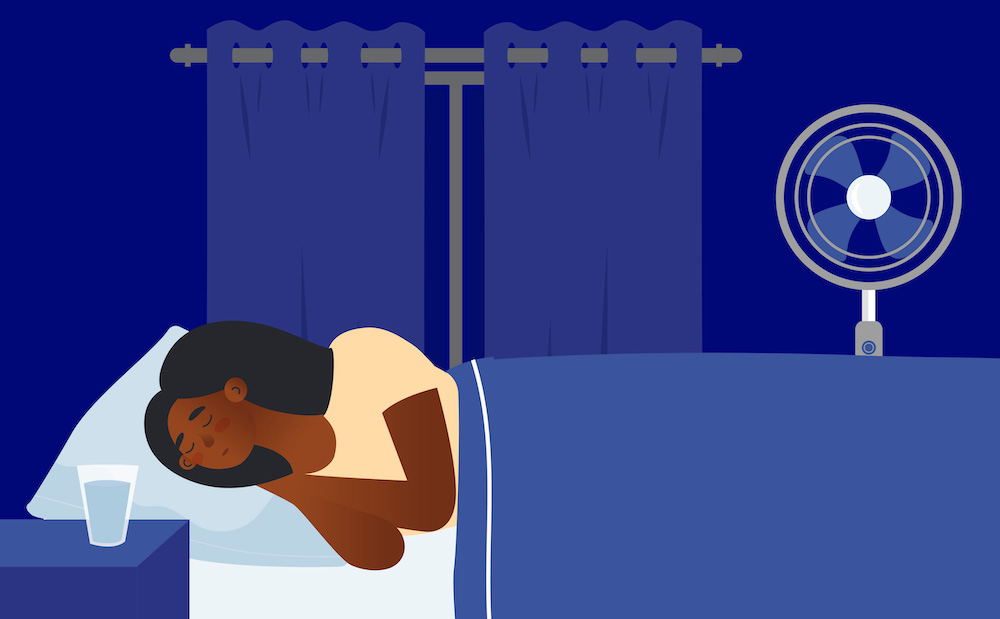
How well do you set yourself up for successful sleep? If you’ve never heard of sleep hygiene, the term might sound odd. But having good sleep hygiene has nothing to do with keeping you clean. Sleep hygiene describes lifestyle choices that promote quality sleep.
When you know how to do it, you may notice you not only fall asleep quicker, but you sleep better, keeping you awake all day long. It’s not magic — anyone can do it! Below, we’ll lay out everything you need to know about sleep hygiene and how to use it for your best sleep ever.
Note: The content on Sleepopolis is meant to be informative in nature, but it shouldn’t be taken as medical advice, and it shouldn’t take the place of medical advice and supervision from a trained professional. If you feel you may be suffering from any sleep disorder or medical condition, please see your healthcare provider immediately.
Long Story Short
- Sleep hygiene describes lifestyle habits that promote your best sleep.
- Helpful sleep hygiene habits include a regular wake up time, a cozy sleeping space, and daytime exercise.
- Top-notch sleep hygiene also means avoiding some sleep disruptors, like caffeine and alcohol too close to bedtime, phone-scrolling in bed, late afternoon napping, and pre-sleep feasts.
- If these feel overwhelming, start small and pick one — you can always add more on later.
What Is Sleep Hygiene, and Why Is it Important?
Okay, so sleep hygiene is a lifestyle, but what does that mean, exactly? “The term ‘sleep hygiene’ can be misleading, as it suggests a focus solely on nighttime routines,” says Chester Wu, MD, sleep medicine physician in Houston, TX. “However, sleep hygiene actually encompasses behaviors and practices throughout the entire day that influence how we sleep.”
“Good sleep hygiene supports optimal sleep quality, duration, timing, and regularity — the four dimensions of sleep you need to optimize to feel and function your best while you’re awake,”
Dr. Chester wu
Throughout the day, our exposure to natural light, physical activity, stress management, and even the food we eat set the stage for our sleep that night, says Wu. “Good sleep hygiene, then, is much more than pre-bedtime rituals; it’s about maintaining a lifestyle throughout the day that supports healthy sleep and therefore your overall health and wellbeing.”
Sleep hygiene holds such high importance because it helps you sleep better, and sleep is vital to your health. “Good sleep hygiene supports optimal sleep quality, duration, timing, and regularity — the four dimensions of sleep you need to optimize to feel and function your best while you’re awake,” says Wu. (1)
When you sleep, your body ticks off a lot of important tasks: (2)
- Heals damaged tissue
- Gives your heart a rest by lowering blood pressure and heart rate
- Generates hormones
- Regulates metabolism
- Boosts immunity
- Solidifies memories
When your sleep isn’t up to snuff, your body can’t get everything done, and your physical and mental health can take a dip. (3) If this sounds like you, there’s no need to panic — we’re going to tell you how to boost your sleep hygiene game and upgrade your sleep for maximum health.
How to Practice Good Sleep Hygiene
The list below may feel overwhelming, but you don’t have to jump into them all right away. Each aspect of sleep hygiene can mean a lifestyle adjustment, and that’s a big deal! But with each small change you make, you’re setting yourself up for better rest, which can mean better days ahead. Pick one or two and dip your toe into good sleep hygiene.
Keep Your Bedtime Regular
“Our bodies thrive on consistency,” says Wu. When you go to sleep and wake up at the same time every day (yes, even on weekends!), your circadian rhythm, or internal clock, knows when to help you get sleepy or start the wakeup process. (4)
For some, this one may be a no-brainer, while for others, it might sound like a real bummer. But here’s the deal: when you hit the sheets at 9 p.m. on some nights, and 1 a.m. on others, your circadian rhythm gets all turned around, which can affect just about every system in your body. (5)
To keep your sleep on a schedule, you can try:
- Setting an alarm for bedtime and wake time
- Following the same bedtime routine every night
- Winding down before bed using meditation, deep breathing, or reading a book (6) (7) (8)
Circadian Rhythm
Your circadian rhythm is a 24-hour clock in your brain that tells your body when it’s time to wake up and time to sleep. Also known as your internal clock or sleep/wake cycle, your circadian rhythm allows your body to heal, store energy, build brain connections, and consolidate your memories. (5)
Consider Skipping Naps
Naps: friend or foe? It’s tricky… Naps can mess with your nightly sleep if they’re not done right. For example, a long nap late in the day can make you stay up later and get less sleep that night. (9)
But Wu says naps aren’t automatically the enemy. “Unless you suffer from insomnia, you don’t need to avoid naps; you just need to time them correctly.” Wu recommends keeping your naps in the shorter “catnap” variety (about 20 minutes) and try not to nap past mid-afternoon.
“Naps can actually be beneficial — helping you make up for lost sleep and boosting alertness and mood,” Wu adds. If you notice your napping takes away from your nocturnal snoozing, you can try to shorten them or take them earlier in the day.
Avoid Caffeine and Alcohol Before Bed
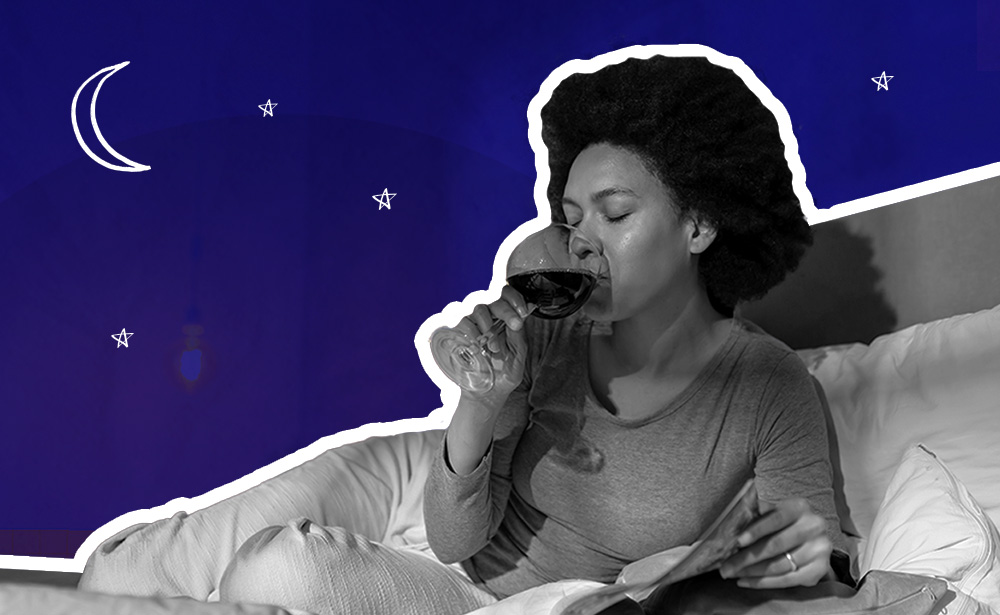
Even though they have somewhat opposite effects, both alcohol and caffeine can interfere with a good nights’ sleep. (10) (11) While alcohol can make you feel sleepy at first, it ends up disturbing your sleep later in the night, says Wu. “A general rule of thumb is abstaining at least 3-4 hours before bed, but research shows upwards of 6 hours may be better.”
Caffeine, on the other hand, works as a stimulant in your body. If you eat or drink anything full of it (like coffee, soda, or chocolate) too late in the day, it can make falling asleep harder, and then disturb your quality of sleep through the night, says Wu. “Caffeine can last in your system far longer than most of us realize — even upwards of 12 hours — so abstaining after mid-morning is [your best] bet for better sleep,” he says.
Everyone’s body reacts a bit differently to caffeine, so you can experiment a bit to find your optimal cutoff time. (10)
Optimize Your Sleeping Space
Your sleeping space or bedroom can make or break your sleep. Loud noises, too-much light, and uncomfortable temperatures can wake you up all night long. (12) A truly inviting sleep space should be dark, quiet, and cool, says Wu.
If you live in an overly-lit area, a loud city environment, or have young kids, curating your perfect sleep oasis may feel nearly impossible. But a few simple life hacks and purchases can cozy up your bedroom in no time:
- Invest in a comfortable mattress and bedding.
- For bright bedrooms, try blackout curtains or a sleep mask.
- Tape over those annoying electronic dots on your TV, air purifier, or phone charger.
- Set your thermostat between 66 and 70 degrees Fahrenheit — we sleep better in a cool room. (13)
- If you expect loud noises like traffic, car alarms, or a partner’s snores, try playing white noise and wearing earplugs.
Steer Clear of Pre-Bed Electronics
Not only does the content on your screens get addictive and keep you up too late, the artificial light they put out can confuse your circadian rhythm and make it hard to fall asleep — even after you put the phone down or turn off your TV. (14) (12)
If you get plenty of natural light during the day, your nighttime electronic light may not bother you as much, but the content hitting your brain can still hype you up too much to sleep, says Wu. “Opt for a relaxing, potentially electronics-free wind-down routine, and a bedtime alarm to make sure you get enough sleep.”
Reserve Your Bed
When possible, try to keep your bed reserved for sleeping and sex only. If you hang out in your bed throughout the day or evening, by the time you lie down to fall asleep, your body won’t get the sleepy-time cue as easily.
This is especially true for people who have anxiety about their sleeping troubles, says Wu. “This is because we’re very good at making associations between our environment and our behaviors. If you associate your bed with a place you’re awake and worrying, it may very well become a place where you’re awake and worrying far more than you’d like!”
If you can stay away from midday-bed hangouts (or bed rotting, as the social media savvy may call it), by the time you collapse onto that mattress for the night, your body should get the memo that it’s time to go to sleep.
Get Moving
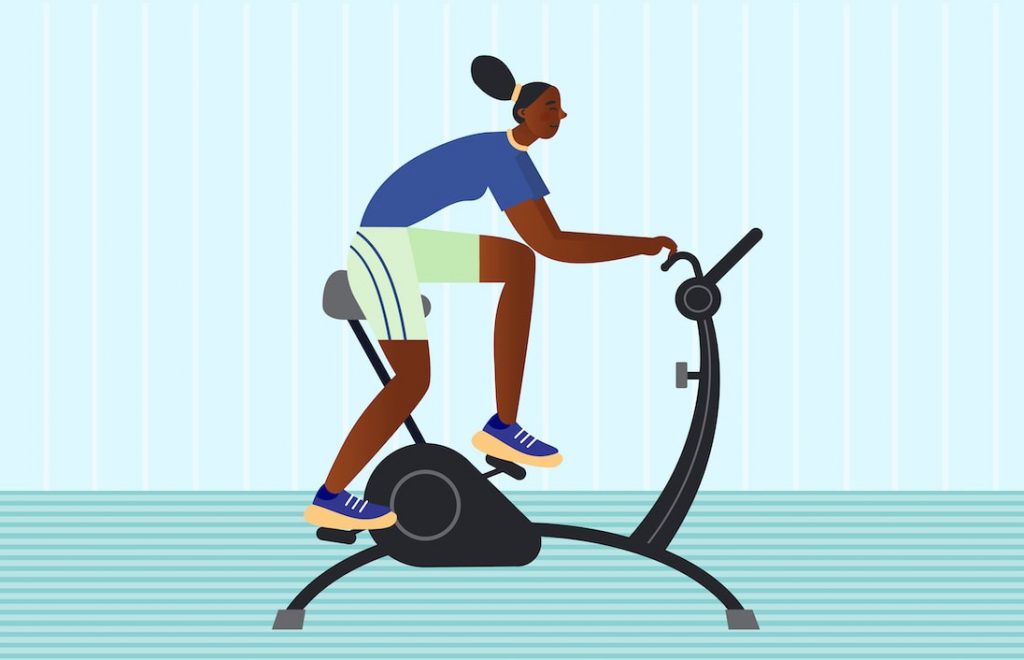
The more you can squeeze in physical activity during the day, the better you’ll sleep at night. (15) Exercise helps you sleep by releasing endorphins — hormones that lower stress and anxiety — and help you relax at bedtime. It also helps regulate your circadian rhythm and tells your body to release brain messengers like serotonin and norepinephrine, which can boost your mood and also help you chill out. (15)
The type and timing of exercise are important for good sleep, and experts say moderate-intensity exercise works the best. (15) Moderate-intensity exercise increases your heart rate and makes you sweat. You can tell you’re in the heart-rate sweet spot if you can talk, but not sing. (16) Some good options for this exercise level are: (16)
- Fast walking
- Water aerobics
- Riding a bike on mostly level ground
- Pushing a lawn mower
Try to exercise in the morning or afternoon — physical activity too close to bedtime (about an hour) can lower your sleep quality. (15) But beyond that, go for it!
Watch When You Eat
What and when you eat can get in the way of a solid night’s rest. It takes time for your body to digest food, says Wu. Eating two to three hours before bed can lead to indigestion, especially with large or heavy meals. (17) The type of food you eat can make a difference too, Wu says. “[Meals] high in fat or sugar may also prolong digestion and impact the quality of your sleep.” If you feel super hungry right before bed, stick with a small healthy (or even sleep-promoting) snack.
Don’t Hang Around
Let’s say it’s one of those nights and you can’t fall asleep. You may be tempted to stick it out, but after about 20 minutes, go ahead and get up. (6) Unfortunately, we can’t just tell our bodies to fall asleep, and it’s better not to let your brain link your bed with sleeplessness, says Wu. (18) You can get up and read quietly for a while, or do some of your wind-down activities (meditation and deep breathing) to reset for another attempt. Try to avoid tuning into your phone and TV, though — the blue light from these devices can actually make it harder to sleep. (19)
Common Poor Sleep Hygiene Habits
As you can probably imagine, poor sleep hygiene habits involve doing the opposite of everything you’ve just read. One study found that people who had problems sleeping had a lot more poor sleep hygiene habits than people who were sleeping great. (1) Here are some sneaky sleep hygiene habits that can creep back into your life:
- Snagging an alcoholic beverage before bed
- Chaotic sleep schedules
- Late afternoon or evening caffeine
- Nighttime exercise
- Sleeping in a noisy, bright bedroom
Life is busy, and setting the stage for good sleep can feel complicated. But give as many of these a miss as you can and you’ll enjoy your best rest yet.
The Last Word From Sleepopolis
Sleep hygiene involves some big changes, and it’s easy to feel overwhelmed. Remember, you don’t have to upend your life and put each of these into practice at once. Pick one or two that sound doable and start there. Once those feel old-hat, you can add on a few more. Once you’re sleeping better, you won’t miss your poor sleep hygiene habits at all.
Sources
- Alanazi EM, Alanazi AMM, Albuhairy AH, Alanazi AAA. Sleep Hygiene Practices and Its Impact on Mental Health and Functional Performance Among Adults in Tabuk City: A Cross-Sectional Study. Cureus. Published online March 16, 2023. doi:10.7759/cureus.36221https://sleepeducation.org/cant-sleep-do-this-not-that/
- How Sleep Works – Why Is Sleep Important? | NHLBI, NIH. Accessed September 14, 2023. https://www.nhlbi.nih.gov/health/sleep/why-sleep-important
- Sleep Deprivation and Deficiency – What Are Sleep Deprivation and Deficiency? | NHLBI, NIH. Accessed November 4, 2023. https://www.nhlbi.nih.gov/health/sleep-deprivation
- Markwald RR, Iftikhar I, Youngstedt SD. BEHAVIORAL STRATEGIES, INCLUDING EXERCISE, FOR ADDRESSING INSOMNIA. ACSM’s Health & Fitness Journal. 2018;22(2):23. doi:10.1249/FIT.0000000000000375
- Physiology, Circadian Rhythm – StatPearls – NCBI Bookshelf. Accessed January 14, 2024. https://www.ncbi.nlm.nih.gov/books/NBK519507/
- Espie CA. The ‘5 principles’ of good sleep health. Journal of Sleep Research. 2022;31(3):e13502. doi:10.1111/jsr.13502
- Barrett B, Harden CM, Brown RL, Coe CL, Irwin MR. Mindfulness meditation and exercise both improve sleep quality: Secondary analysis of a randomized controlled trial of community dwelling adults. Sleep Health: Journal of the National Sleep Foundation. 2020;6(6):804-813. doi:10.1016/j.sleh.2020.04.003
- Laborde S, Hosang T, Mosley E, Dosseville F. Influence of a 30-Day Slow-Paced Breathing Intervention Compared to Social Media Use on Subjective Sleep Quality and Cardiac Vagal Activity. Journal of Clinical Medicine. 2019;8(2):193. doi:10.3390/jcm8020193
- Rea EM, Nicholson LM, Mead MP, Egbert AH, Bohnert AM. Daily relations between nap occurrence, duration, and timing and nocturnal sleep patterns in college students. Sleep Health. 2022;8(4):356-363. doi:10.1016/j.sleh.2022.05.002
- Gardiner C, Weakley J, Burke LM, et al. The effect of caffeine on subsequent sleep: A systematic review and meta-analysis. Sleep Medicine Reviews. 2023;69:101764. doi:10.1016/j.smrv.2023.101764
- He S, Hasler BP, Chakravorty S. Alcohol and sleep-related problems. Current Opinion in Psychology. 2019;30:117-122. doi:10.1016/j.copsyc.2019.03.007
- Blume C, Garbazza C, Spitschan M. Effects of light on human circadian rhythms, sleep and mood. Somnologie. 2019;23(3):147-156. doi:10.1007/s11818-019-00215-x
- Harding EC, Franks NP, Wisden W. The Temperature Dependence of Sleep. Frontiers in Neuroscience. 2019;13. Accessed December 10, 2023. https://www.frontiersin.org/articles/10.3389/fnins.2019.00336
- Nakshine VS, Thute P, Khatib MN, Sarkar B. Increased Screen Time as a Cause of Declining Physical, Psychological Health, and Sleep Patterns: A Literary Review. Cureus. Published online October 8, 2022. doi:10.7759/cureus.30051
- Alnawwar MA, Alraddadi MI, Algethmi RA, Salem GA, Salem MA, Alharbi AA. The Effect of Physical Activity on Sleep Quality and Sleep Disorder: A Systematic Review. Cureus. Published online August 16, 2023. doi:10.7759/cureus.43595
- How much physical activity do adults need? | Physical Activity | CDC. Accessed March 14, 2024. https://www.cdc.gov/physicalactivity/basics/adults/index.htm
- Iao SI, Jansen E, Shedden K, et al. Associations between bedtime eating or drinking, sleep duration and wake after sleep onset: findings from the American time use survey. British Journal of Nutrition. 2022;127(12):1888-1897. doi:10.1017/S0007114521003597
- Can’t sleep? Do this, not that! – Sleep Education. Accessed March 16, 2024. https://sleepeducation.org/cant-sleep-do-this-not-that/
- Silvani MI, Werder R, Perret C. The influence of blue light on sleep, performance and wellbeing in young adults: A systematic review. Front Physiol. 2022;13:943108. doi:10.3389/fphys.2022.943108
Wu, Chester, MD. Personal Interview. March 11, 2024.
